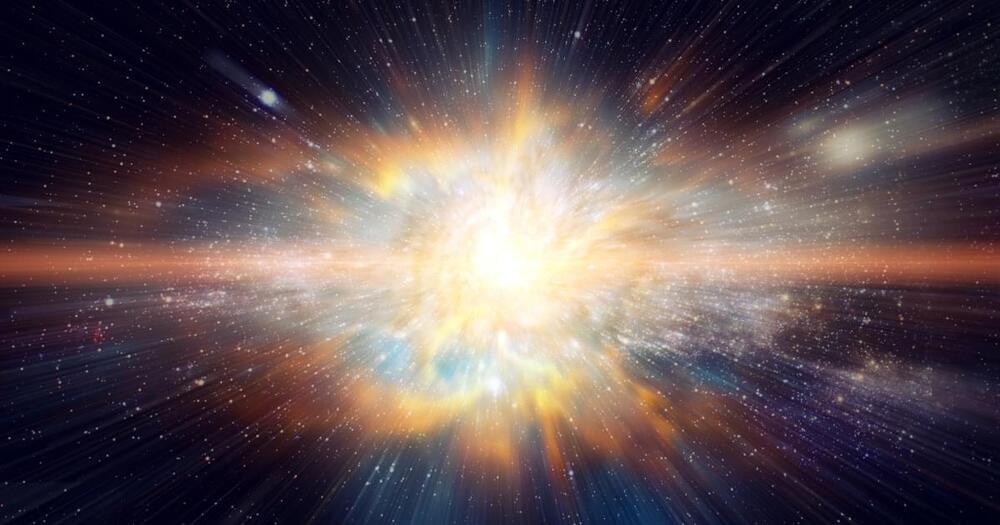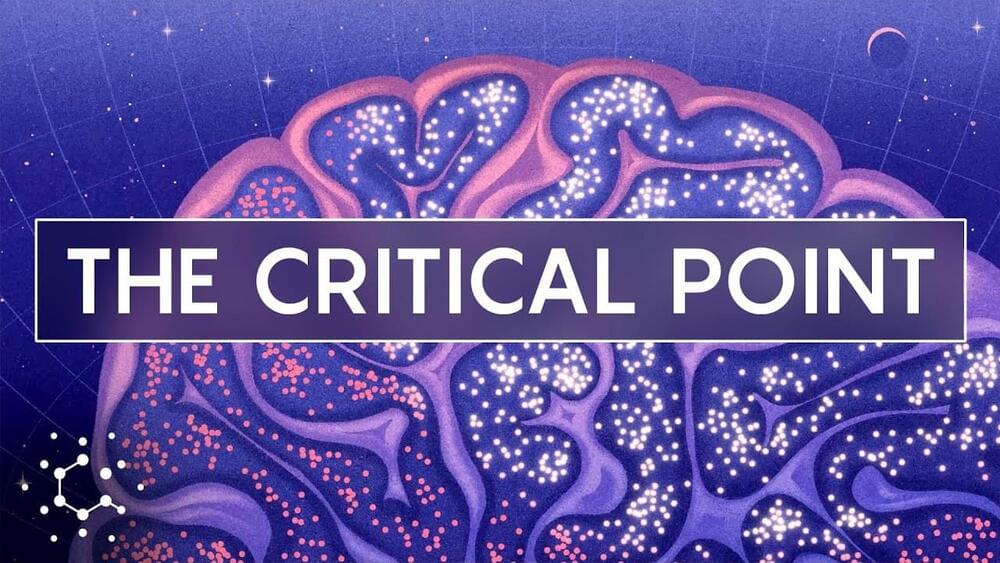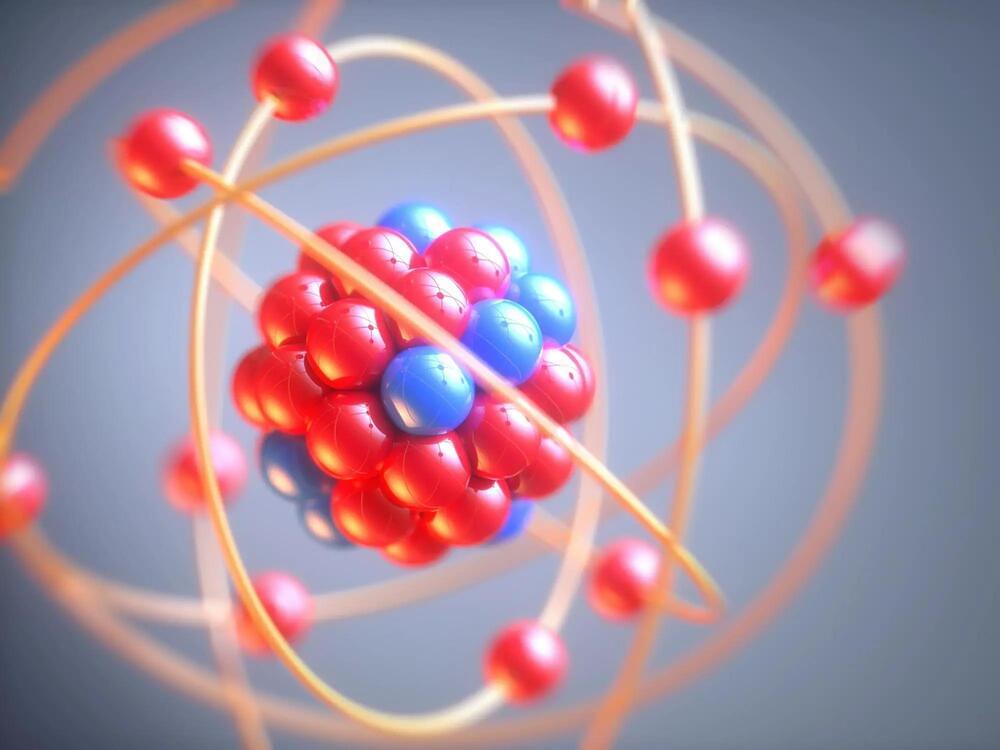Jun 15, 2023
Multiple worlds has been given artistic impetus
Posted by Paul Battista in category: physics
Long a matter of philosophical speculation, the idea of multiple realities has been given new artistic licence by physics.
Long a matter of philosophical speculation, the idea of multiple realities has been given new artistic licence by physics.
A novel type of neural network is helping physicists with the daunting challenge of data analysis.

Editor’s note: For a more mainstream assessment of this idea, see this article by Dr. Ethan Siegel.
Sir Roger Penrose, a mathematician and physicist from the University of Oxford who shared the Nobel Prize in physics in 2020, claims our universe has gone through multiple Big Bangs, with another one coming in our future.
By measuring inflated helium nuclei, physicists have challenged our best understanding of the force that binds protons and neutrons.

The ability of the phenomenon of criticality to explain the sudden emergence of new properties in complex systems has fascinated scientists in recent decades. When systems are balanced at their “critical point,” small changes in individual units can trigger outsized events, just as falling pebbles can start an avalanche. That abrupt shift in behavior describes the phase changes of water from ice to liquid to gas, but it’s also relevant to many other situations, from flocks of starlings on the wing to stock market crashes. In the 1990s, the physicist Per Bak and other scientists suggested that the brain might be operating near its own critical point. Ever since then, neuroscientists have been searching for evidence of fractal patterns and power laws at work in the brain’s networks of neurons. What was once a fringe theory has begun to attract more mainstream attention, with researchers now hunting for mechanisms capable of tuning brains toward criticality.
Learn more about the critical brain hypothesis: https://www.quantamagazine.org/a-physical-theory-for-when-th…-20230131/
Continue reading “Could One Physics Theory Unlock the Mysteries of the Brain?” »
Basic, or “elementary,” cellular automata like The Game of Life appeal to researchers working in mathematics and computer science theory, but they can have practical applications too. Some of the elementary cellular automata can be used for random number generation, physics simulations, and cryptography. Others are computationally as powerful as conventional computing architectures—at least in principle. In a sense, these task-oriented cellular automata are akin to an ant colony in which the simple actions of individual ants combine to perform larger collective actions, such as digging tunnels, or collecting food and taking it back to the nest. More “advanced” cellular automata, which have more complicated rules (although still based on neighboring cells), can be used for practical computing tasks such as identifying objects in an image.
Marandi explains: “While we are fascinated by the type of complex behaviors that we can simulate with a relatively simple photonic hardware, we are really excited about the potential of more advanced photonic cellular automata for practical computing applications.”
Marandi says cellular automata are well suited to photonic computing for a couple of reasons. Since information processing is happening at an extremely local level (remember in cellular automata, cells interact only with their immediate neighbors), they eliminate the need for much of the hardware that makes photonic computing difficult: the various gates, switches, and devices that are otherwise required for moving and storing light-based information. And the high-bandwidth nature of photonic computing means cellular automata can run incredibly fast. In traditional computing, cellular automata might be designed in a computer language, which is built upon another layer of “machine” language below that, which itself sits atop the binary zeroes and ones that make up digital information.
Hundreds of physicists met in London this week for the ninth Future Circular Collider (FCC) Conferen.

The Gemini North telescope, one half of the International Gemini Observatory operated by NSF’s NOIRLab, has returned from a seven-month hiatus literally with a bang, as it has captured the spectacular aftermath of a supernova, a massive star that exploded in the large, face-on, spiral Pinwheel Galaxy (Messier 101). The supernova, named SN 2023ixf (lower left), was discovered on May 19 by amateur astronomer Koichi Itagaki.
Since its discovery, observers around the globe have pointed their telescopes toward Messier 101 to get a look at the burst of light. Over the coming months, Gemini North will allow astronomers to study how the light from the supernova fades and how its spectrum evolves over time, helping astronomers better understand the physics of such explosions.

Nuclear physicists at RIKEN have successfully created an extremely neutron-rich isotope of sodium, 39 Na, previously predicted by many atomic nuclei models to be non-existent. This discovery has significant implications for our understanding of atomic nuclei structure and the astrophysical processes that form heavier elements on Earth.
Nuclear physicists have made the most neutron-rich form of sodium yet, which will help reveal more about the complex world of nuclei.
Continue reading “Sodium on Steroids: A Nuclear Physics Breakthrough Thought To Be Impossible” »
A research team led by University of California Los Angeles astrophysicists recently published their findings in the journal Nature, confirming the existence of the faintest galaxy ever seen from the early universe known as JD1.
